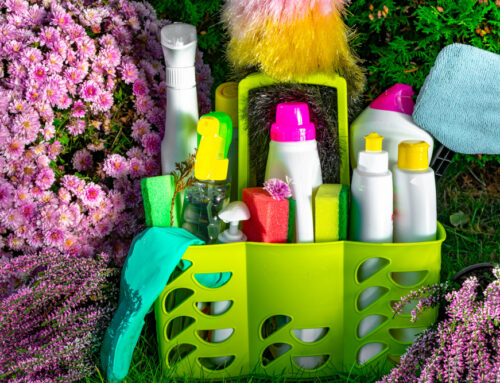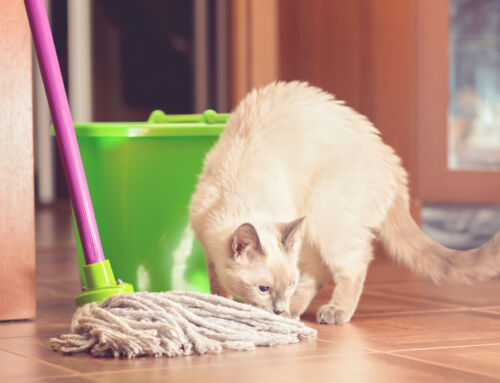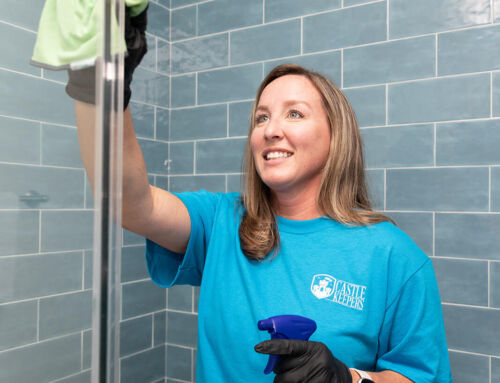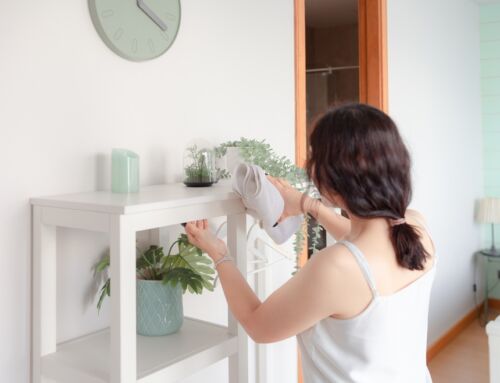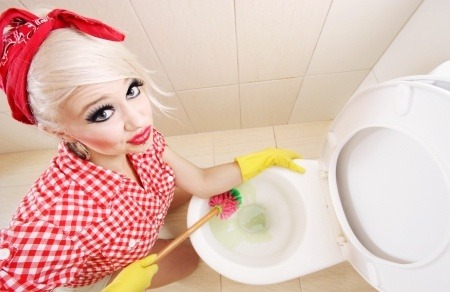
Show Your Toilet Some Love
Your toilet or commode takes a lot of crap (I’m sure you all saw that joke coming) and is indeed underappreciated. We are lucky to live in a country where we can use the toilet, flush, and never have to worry about our poop or where it goes – so treat your toilet well by cleaning it regularly and correctly.
Did you know that by law toilets must be made of nonporous materials? Since vitreous china is both tough and nonporous, it is all but universally used to make toilets worldwide. You can clean the outside of a commode (tank, seat, outside of bowl) the same way you clean showers and tubs – by wiping it down with a disinfectant cleaner.
It is best to clean the inside of toilet bowls with toilet bowl cleaners. As toilet bowl cleaners contain harsh chemicals, always read the instructions carefully before use. An errant splash can damage your skin or eyes, so be careful and use gloves and eye protection. These products can also etch countertops and other materials.
If you are using dry toilet bowl cleaners of grains or powders, instructions usually tell you to wet the sides of the bowl and sprinkle the dry cleaner on the sides of the bowl and in the water, then let the cleaner stand about 10 minutes. The next step is to scrub the sides, under and around the rim, and as deep into the trap as you can reach with a toilet brush. Gel cleaners have the advantage of clinging to the sides of the bowl better than liquid or dry cleaners, supposedly removing more stains and killing more germs. Both gels and liquids just require a squirt under the rim, around the sides, and into the water. One technique for cleaning as much of the inside of the bowl as possible is to empty the bowl of as much water as possible by using a plunger or toilet brush and quickly forcing as much water as possible down the neck with four or five quick pushes. Doing this uncovers portions of the bowl that are usually underwater for your cleaner to contact. No matter what type of cleaner or technique you use, when the bowl is clean, rinse thoroughly by flushing.
Vitreous porcelain is tough and non-porous and is used to make toilets worldwide.
If you find the inside of your toilet requires more scrubbing, if you haven’t put your gloves on by now, now’s the time to do it. You could use a pumice stone to gently scrub rings off the sides (always soak your pumice stone in water for a few minutes first, as per directions on the label), or make a paste of powdered cleanser and water to scrub. Whatever tools you use, make sure you throw them away if you can’t disinfect them when you are finished.
If you live with hard water, you’ll probably need to use a product such as Lime-Away or CLR periodically to make sure the holes under the rim don’t get clogged with lime deposits.
About Castle Keepers House Cleaning

LET US DO THE CLEANING. YOU DO THE RELAXING.
Share this article
A quick overview of the topics covered in this article.


